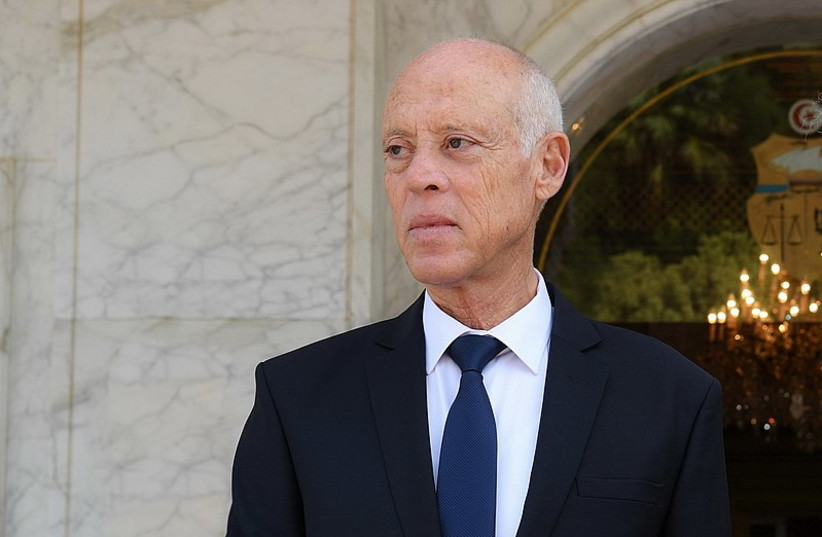As African migration to Europe spikes, Tunisia takes center stage in Italy’s foreign policy agenda
Italian Prime Minister Giorgia Meloni signed three agreements with Tunisian President Kais Saied last week, during her fourth visit to Tunisia in less than a year.
The frequent diplomatic exchanges and extensive agreements between these nations underscore Tunisia’s growing significance within Italy’s foreign policy framework. That significance is particularly notable given Tunisia’s reputation as a key departure point for irregular migration to Europe.
As part of its strategy to enhance economic relations with African countries and address illegal immigration to Europe, Italy is extending €105 million Euro ($112 million US dollars) in cash and credit lines to Tunisia. This amount includes €50 million Euro ($53 million US dollars) in cash aimed at promoting energy efficiency and renewable energy projects in Tunisia and a €55 million Euro ($59 million US dollars) credit line to bolster small and midsize Tunisian enterprises.
Riccardo Fabiani, project director for North Africa at the International Crisis Group, told The Media Line that Tunisia has become one of Italy’s foreign policy priorities following the spike in irregular migration to Italy from Tunisia.
Fabiani explained that containing migration is a policy priority for Italy’s right-wing government, particularly ahead of the European Parliament elections. “Italy is trying to reinforce the bilateral relationship to convince Tunisia to continue to collaborate on this delicate file,” he said.
Kelly Petillo, program manager for the Middle East and North Africa at the European Council on Foreign Relations, noted that Tunisia has become a critical departure point for migrants. Over 50% of migrant departures to Italy originated from Tunisia in 2023, and the rate of immigration from Tunisia is increasing.
Italy’s Tunisia strategy

Petillo told The Media Line that Tunisia also plays a key role in Meloni’s Africa strategy, known as the Mattei Plan. The plan, which was announced in October 2022, aims to place Italy as a key bridge between Europe and Africa.
Mario Savina, a North Africa researcher at the Sapienza University of Rome and an analyst at OSMED Istituto S. Pio V., told The Media Line that the agreements between the two countries were part of an effort to convince Tunisia to crack down on irregular migration to Italy.
Fabiani said that the agreements were meant to reinforce the perception that Italy is willing to cooperate with Tunisia as long as the Tunisians continue to support Italy on migration. “For the first time, the Italian right has understood that migration is a complex problem that deserves a multidimensional solution,” he said.
According to Fabiani, this approach lacks both a convincing plan and sufficient support measures and resources. “There is considerable naivete behind this approach,” he said.
Petillo said that the agreements aim to make Tunisia more stable as a way of decreasing irregular migration. “They are aimed at helping African countries like Tunisia boost their economies, but in practice, they end up letting Italy profit from the dividends those investments bring,” she said.
She said that Prime Minister Meloni’s real goal is to secure a steady flow of energy resources into Italy. “These agreements hardly tackle the structural problems in these countries which can appease people living there, like corruption and poor economies,” she said.
Savina noted the contradiction involved in investing in a country in order to prevent that country’s residents from leaving. He cited studies that show that improved living conditions initially produce an increase in migration as more people have access to the resources needed to leave.
“They obtain an education that opens up horizons and increases marketable skills, and they develop new aspirations that they cannot yet satisfy on the spot,” he said. He explained that only in the long term can stable development offer a credible alternative to migration.
Fabiani, too, said that investment in Tunisia will not result in the short-term effects that Italy is seeking. In order to decrease migration in the short term, Italy would have to reinforce security in Tunisia. “This also means turning a blind eye to repression, human rights violations, and deaths when crossing the sea,” he said.
During her visit, Meloni affirmed to President Saied that Italy did not intend to let Tunisia become a destination or permanent residence for migrants. “We know that Tunisia cannot become the country of arrival for migrants, and cooperation on this must be strengthened,” she said on Wednesday.
Savina said that the Tunisian president was worried about the number of immigrants from sub-Saharan Africa who had come to Tunisia. Saied is exploiting the situation to obtain benefits from his European partners, much like Turkish President Recep Tayyip Erdoğan and the late Libyan President Moammar Gadhafi did, Savina said.
“Saied is quite keen to ensure Tunisia doesn’t become a recipient of migrants like Turkey did as part of the EU-Turkey deal in 2016, and last week he said he had no intention of opening migrant detention centers as Albania did as part of its deal with Italy,” Petillo said. She said that Saied’s words are likely just tough rhetoric, noting that the deals between Tunisia and Italy are highly lucrative for Saied.





Comments are closed.